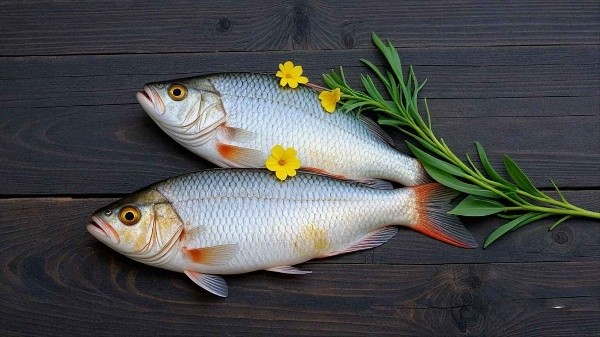As millions of people in West Bengal prepare for the grand celebration of Durga Puja in October, they may face a significant shortage of hilsa, their beloved fish. This situation arises from Bangladesh's recent decision to intensify its crackdown on the transportation of hilsa to India, reinforcing a long-standing ban on exports.
Bangladesh's Renewed Export Ban
Bangladesh, recognized as the world's largest producer of hilsa, has taken this step to ensure that the prized fish remains accessible to its own consumers. Farida Akhter, an adviser to the Bangladesh Ministry of Fisheries and Livestock, stated, “A lot of fish is [still] going from Bangladesh to India [despite the ban]. This time we will not allow the hilsa to cross the border.” This renewed effort comes shortly after a new government took office in Dhaka, marking a departure from the previous administration's approach.
Historically, the former Prime Minister Sheikh Hasina had adopted a strategy known as "hilsa diplomacy," where she would allow the export of hilsa to India during the Durga Puja festival as a goodwill gesture. This included sending hilsa to West Bengal Chief Minister Mamata Banerjee and even gifting 30 kg of hilsa to Indian President Pranab Mukherjee in 2017 in hopes of resolving a long-standing water dispute.
Political Context and Implications
The recent political upheaval in Bangladesh, which saw Hasina removed from power on August 5 following widespread protests, has complicated relations with India. Her attempts to secure asylum in various countries have further strained diplomatic ties. The new interim government in Dhaka is now faced with the challenge of balancing domestic needs with international relations. Akhter emphasized that while they value their friendship with India, the welfare of their own people must take precedence: “The question of goodwill is separate from this.”
Economic Impact and Local Prices
Hilsa, known scientifically as Tenualosa ilisha, is not only Bangladesh's national fish but also a vital part of its economy, contributing approximately 1% to the country's GDP. The fish accounts for about 12% of Bangladesh's total fish production, with fishermen catching around 600,000 tonnes annually. In previous years, the government permitted the export of 3,000 to 5,000 tonnes of hilsa during Durga Puja, but this year, the export ban has been imposed due to concerns over local scarcity.
Despite the ban, reports indicate that hilsa prices in the local market have surged. A 1.5 kg hilsa is now selling for around 1,800 taka (approximately $15), which is significantly higher than last year. Fishermen attribute this price increase to poor catches, exacerbated by rough weather conditions that have limited their fishing opportunities.
Cultural Significance of Hilsa
Hilsa holds a revered status among Bengalis on both sides of the India-Bangladesh border. Its scarcity is likely to frustrate many, especially during the festive season. The fish is celebrated for its versatility in cooking, often prepared in various ways, such as steamed with mustard paste or fried with spices. Bengali-American food historian Chitrita Banerji has praised hilsa for its exquisite flavor and cultural significance, describing it as “the darling of the waters” and a “prince among fish.”
As the Durga Puja festival approaches, the implications of this renewed export ban on hilsa will be felt deeply by the people of West Bengal, who may find their cherished dish increasingly difficult to obtain. The situation underscores the delicate balance between domestic needs and international relations, particularly in the context of Bangladesh's evolving political landscape.








